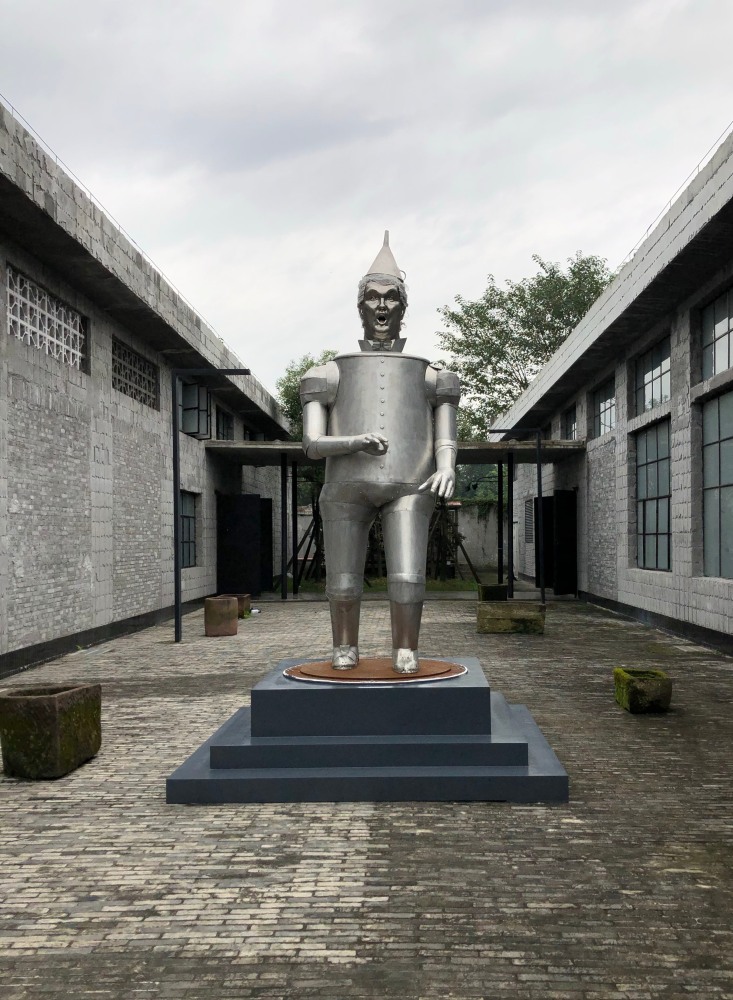
Tin Man of the Twenty-First Century, 2018. Produced in collaboration with Chico MacMurtrie. Courtesy Siebe Tettero, Anren Biennale 2019.
Coco Fusco's included in the second Anren Biennale, A Confrontation of Ideals, curated by Lyu Peng, He Guiyan, and Siebe Tettero, in Anren, Chengdu, Sichuan Province, China.
An excerpt of the press release follows:
The Second Anren Biennale draws on two historical metaphors regarding East and West to express the main themes of contemporary art in the age of globalization: In an era of complex and dramatic conflict, in which rival civilizations observe the world, how do we talk and communicate with each other? Further questions are: What do the new treasure ships in the era of globalization bring from the people of Asia to other regions of the world? And what new kind of globe can embody a new vision of humanity and an understanding of the past, present and future of human civilization? How can humanity build a shared community of civilizations that can face the challenges of the future together?
The sensitivity of artists and the richness of artistic ideas form the faces to be presented at this Biennale and, especially at a time when the world’s pattern is undergoing profound change, the voices of art will appear particularly influential and enlightening. Based on the lessons of history, art often makes valuable prophecies about the future. Huntington pointed out: A multicultural world emerged after the end of the Cold War, whereas previously the world had been largely comprised of Western countries led by the United States, socialist countries led by the Soviet Union, as well as a “Third World” which was considered poor and lacking in stability. This is certainly not to say that historical and cultural communications between different countries and regions had only just begun, but that for a considerable period of time previously the differences between the histories and cultures of various countries and nationalities were shrouded by ideological conflict and not fully presented. After the end of the Cold War, people of different background civilizations began to place issues of culture and identity on the agenda: Who are we? Where are we ultimately from? Where are we going? As a result, conceptual issues of ancestry, tradition, language, religion, history, and customs began to emerge; cultural preferences, commonalities, and differences also began to emerge. Based on the changes in the world, culture is beginning to become a more effective political strategy and communication tool. The organizational and structural abilities of culture often transcend ideology, and cultural conflicts often break through the consistency of ideology. The basic strategy of the Anren Biennale is to provide the opportunity to observe and analyze this complex and diverse world through the artist’s personal observation, as well as to enter into their dialogue with the audience, and to simulate the various interesting issues highlighted in human cultural exchanges through an aesthetic perspective.
A Confrontation of Ideals
October 12, 2019 – February 12, 2020
Anren, Chengdu, Sichuan Province, China